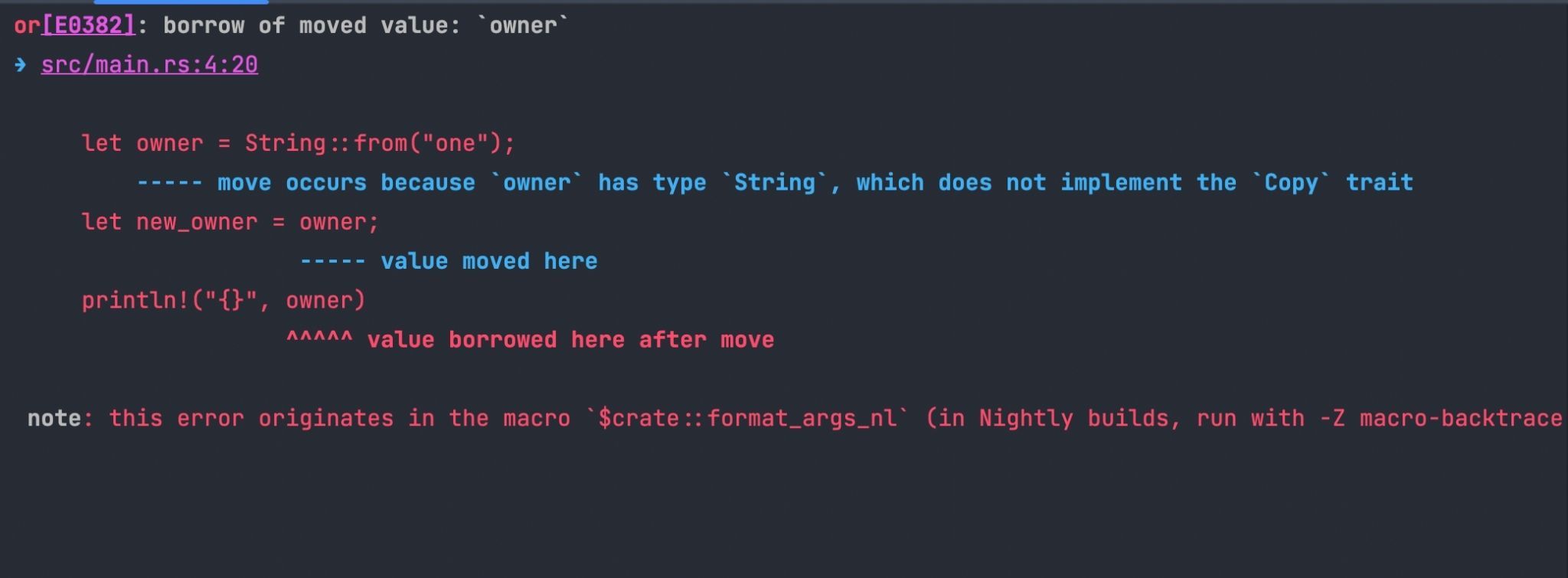Programming languages differ in how they cope with memory and implement memory administration pointers. Go and Python make use of garbage collectors, so builders can cope with writing code. C and C++ give programmers obligation for managing memory at a lower diploma.
Rust treats memory administration differently, using concepts it calls possession and borrowing. It makes use of a “borrow checker” to implement memory safety successfully.
What Is Possession?
Possession is a perform and convention of Rust that helps make certain the memory safety of packages and never utilizing a garbage collector. It’s one different methodology of tackling the difficulty of memory leaks in your code.
The Rust compiler checks if a program obeys the possession pointers at compile time. If this method follows these pointers, it’d run. If it will not, the compiler refuses to supply an executable.
Rust verifies the possession pointers using the borrow checkers. The borrow checker verifies the possession model and decides if a value in memory (stack or heap) is out of scope or not. If a value is out of its scope, it isn’t accessible to totally different parts of this method besides it’s borrowed.
The Possession Pointers
In Rust, every variable owns the value it’s initialized with, and there can solely be one proprietor. As quickly because the proprietor is out of scope, the value is dropped. It’s vital to know the small print of the possession pointers.
The first possession rule is that every variable owns its initialized value.
let proprietor = String::from("one");
The proprietor variable above owns the string one and, in distinction to languages akin to Python and Go, that value will be dropped on variable reassignment.
The second possession rule is that two variables can’t degree to the similar memory location; every value can have only one proprietor.
let new_owner = proprietor;
The new_owner variable now owns the value saved on the memory location of the proprietor variables. For individuals who try to make use of the proprietor variable, the compiler will panic, and it will refuse to generate an executable.
In most languages that use garbage collectors, two variables can degree to the similar memory location. That is an occasion of equal JavaScript code:
let proprietor = "proprietor";
let new_owner = proprietor;
console.log(new_owner);
Working the JavaScript code above works with no errors, and for individuals who do the similar in Go or Python, your program will work with out errors too.
The third possession rule is that when a variable is out of the declared scope, the value will get dropped, and memory is deallocated.
let occasion = String::from("It is a model new scope");
print!("", occasion)
You possibly can’t entry the occasion variables outdoor its scope; trying to take motion will set off the compiler to panic.
Possession in Capabilities
When you go a value to a function as an argument, the function can entry that variable although it wasn’t declared in its scope:
fn printer(value: String) -> String
return value
fn most necessary()
let x = String::from("Prints a value");
print!(" The End result of Printing X is that it -:", printer(x));
The function can entry that variable because of Rust strikes possession of it to the function at compile time.
You might assume it’s nonetheless attainable to utilize the variable later in its distinctive scope:
fn printer(value: String) -> String
return value
fn most necessary()
let x = String::from("Prints a value");
print!(" The End result of Printing x is that it -:", printer(x));
println!(" shouldn't be accessible", x)
Nevertheless for individuals who try this, the compiler will panic and refuse to supply an executable:
Rust Prioritizes Code Reusability
Code reusability is a crucial observe, nonetheless to watch code reusability that you should understand Rust’s possession pointers.
Rust is a very versatile programming language. It affords concepts like borrowing, transferring, copying, and cloning possession for variable reusability.




.jpg)